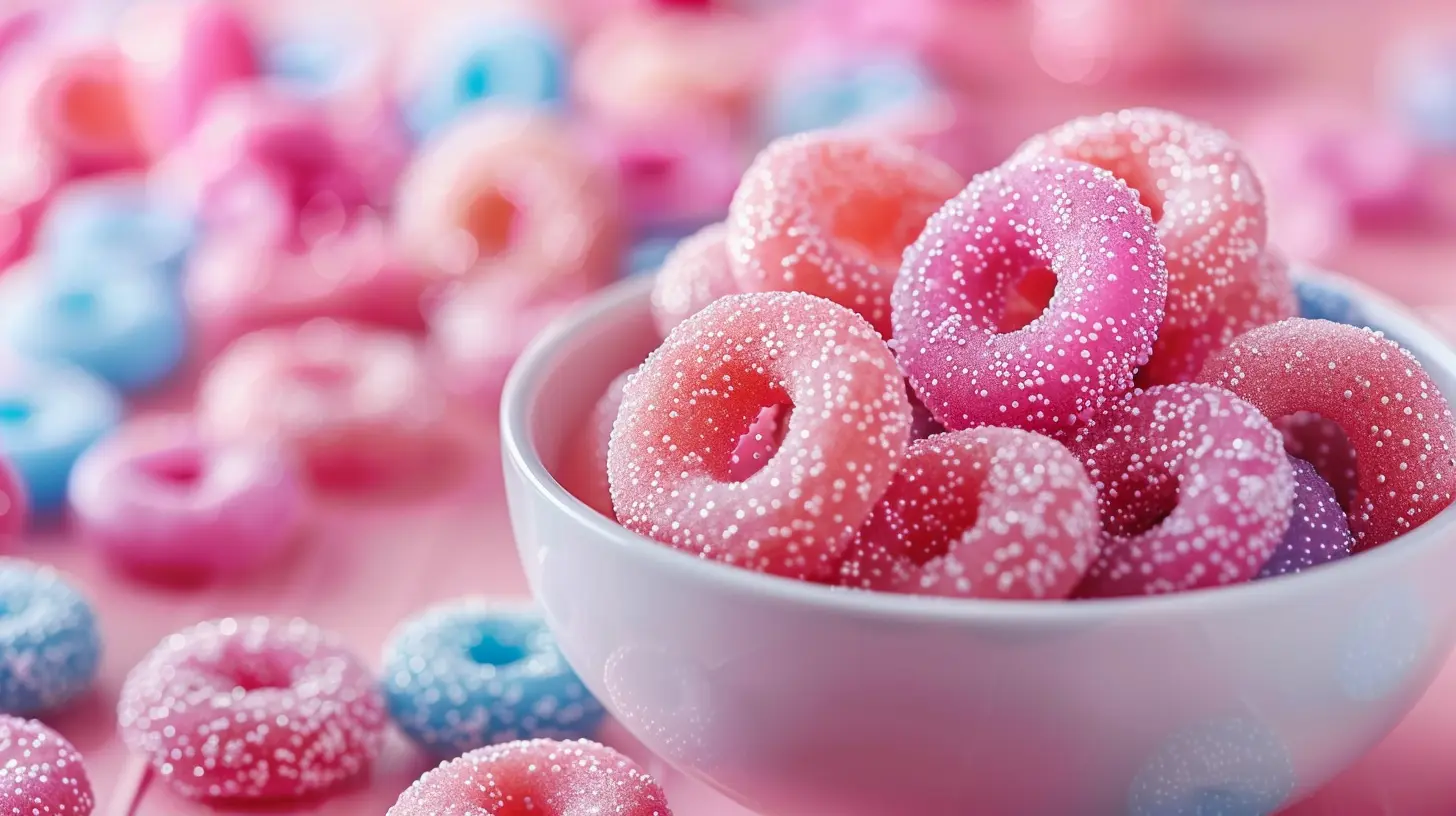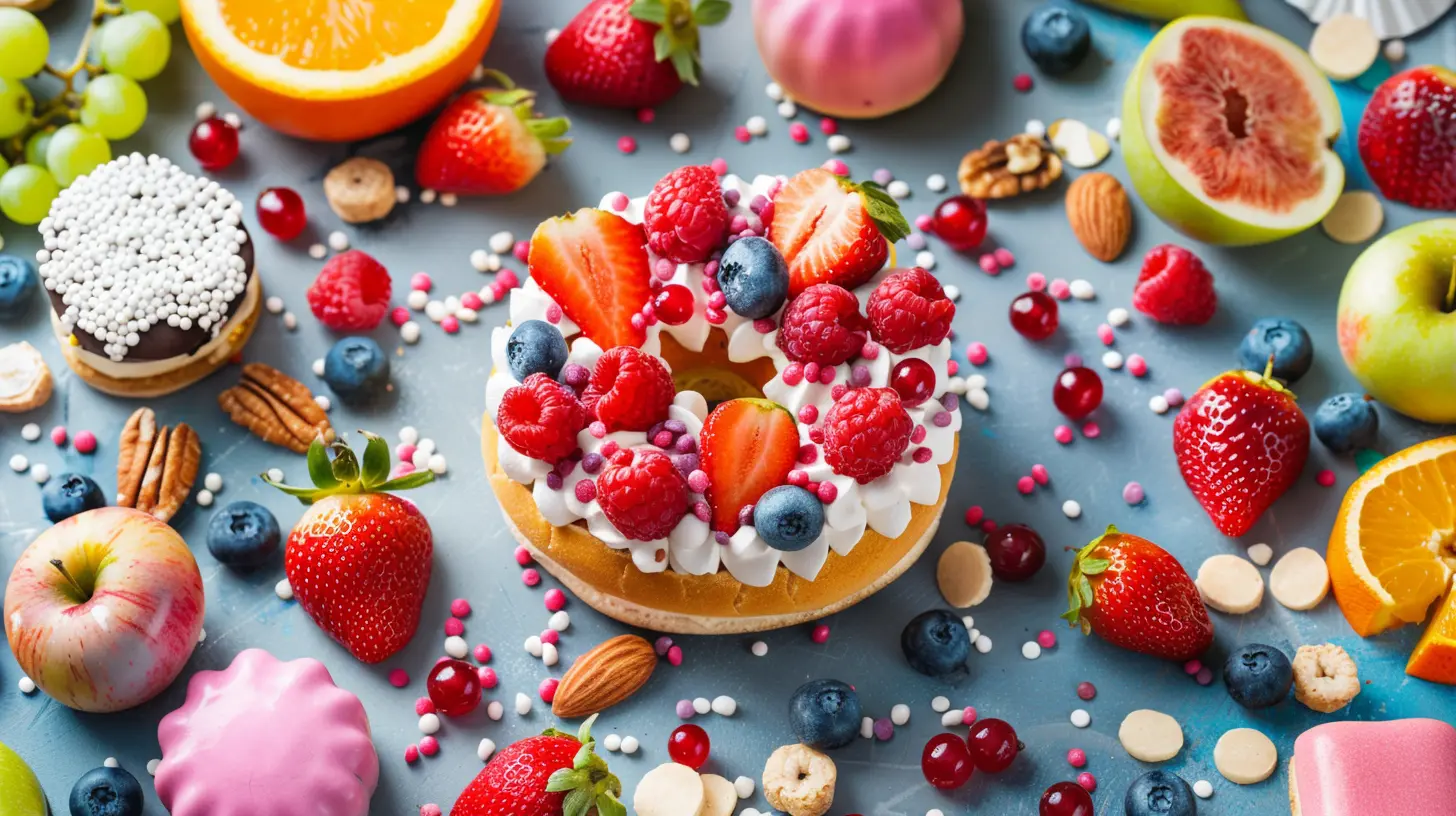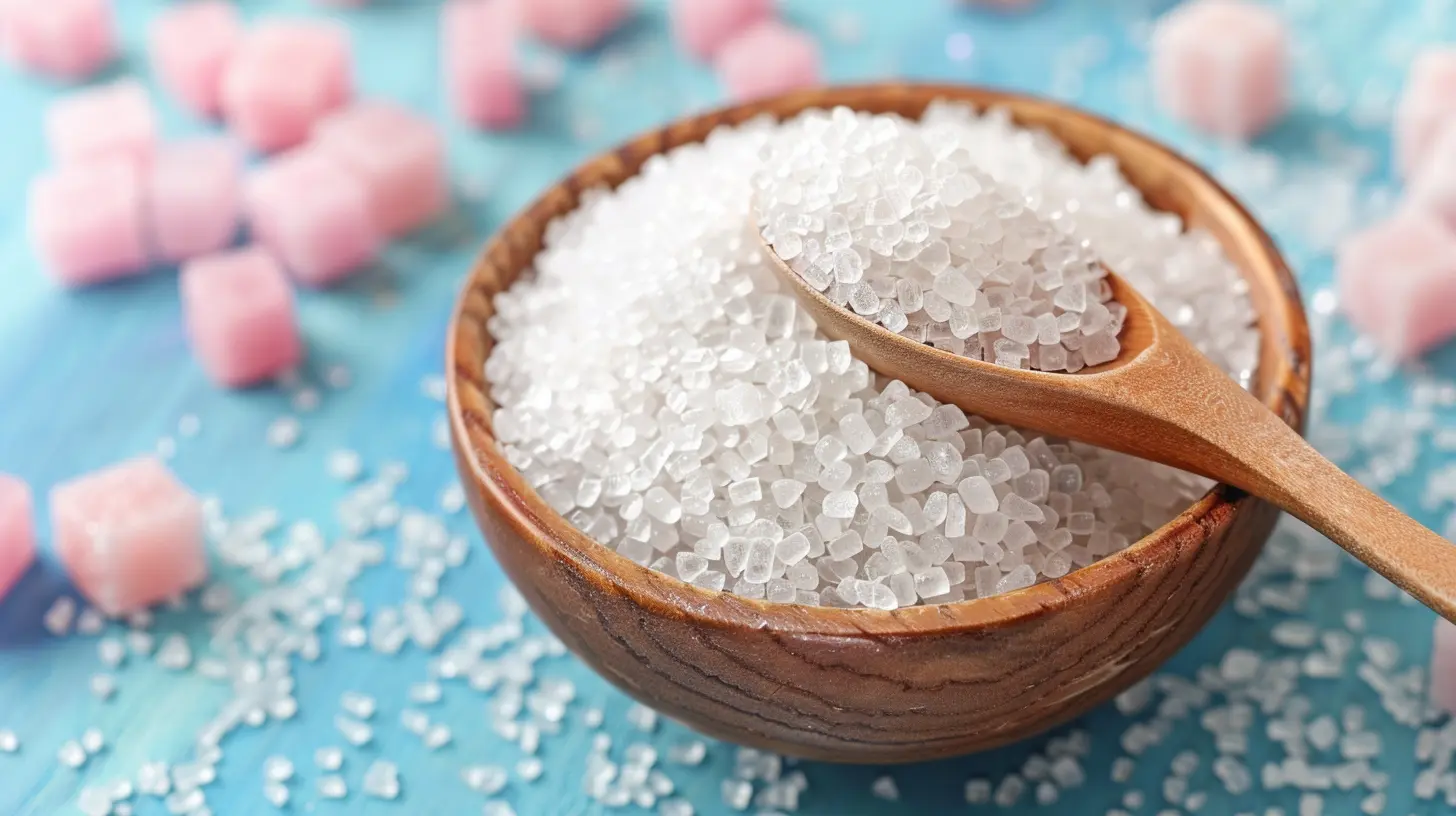How Sugar Impacts Your Gut and Bowel Health
22 October 2025
Ah, sugar. That sweet, innocent-looking granule that makes our taste buds do the happy dance. It’s in your morning latte, your mid-day snack, your grandma’s famous cookie recipe, and dare I say it… even in your “healthy” granola bar. But while sugar might be a treat for your tongue, it’s throwing a rager in your gut—and not the good kind.
So, pull up a chair (preferably not next to your candy stash), and let’s chat about what sugar is really doing to your gut and bowel health. Spoiler alert: Your microbiome isn’t throwing a thank-you party.
The Gut: Your Body’s Unsung Superhero
Before we throw shade at sugar, we’ve gotta understand the MVP it’s messing with—your gut. Think of your gut like a bustling city, packed with hardworking residents: the bacteria, fungi, and microbes that help digest food, absorb nutrients, regulate your mood, and keep your immune system humming.Now imagine inviting sugar to that city.
Yeah. It’s like throwing a firework into a library.
Sugar’s Sneaky Invasion Plan
You eat a cupcake. Your taste buds throw confetti. Meanwhile, sugar quietly makes its way to your gut, where it begins to stir up some serious drama.Let’s break down how sugar affects your gut and bowel health—without sugarcoating it (pun intended).
1. Sugar Feeds the Bad Guys
Remember those gut bacteria we mentioned? Not all of them are friendly. Some are downright mischief-makers.Refined sugar is basically fuel for the “bad bacteria” and yeasts like Candida. When you eat a lot of sugar, you’re handing over a buffet menu to these unhelpful microbes. They multiply, push out the good guys, and throw your gut out of balance—like the biological version of letting trolls take over your Wi-Fi.
That imbalance is called gut dysbiosis. It sounds fancy, but it’s really just your gut being totally out of sync. And trust me, your bowel movements will tell you all about it.
2. Sugar Is a Mood Swing Magician
You know those times when you're inexplicably cranky, bloated, and just not feeling like yourself? That could actually be your gut struggling to process all that sugar.Why? Because overgrowth of bad bacteria can create toxins, mess with your gut lining, and even communicate with your brain. That’s right—your gut and brain are pen pals via the gut-brain axis, and guess who’s writing angry letters after a sugar binge?
You got it. Your gut.
3. It Can Cause Leaky Gut Syndrome
I know what you’re thinking: “Leaky what-now?”“Leaky gut” is when your intestinal barrier becomes damaged and lets undesirable things (like toxins and undigested food particles) sneak into your bloodstream. Imagine a coffee filter with holes—it’s not doing its job anymore.
And yep, excess sugar is a prime suspect here. It causes inflammation, weakens the gut lining, and essentially turns your intestines into a sieve. This can lead to food sensitivities, autoimmune responses, bloating, and all kinds of digestive drama.
4. Sugar Messes with Regularity
Let’s get real. One of the most obvious ways sugar messes with your gut is by knocking your digestion off-kilter. We're talking:- Constipation (hello, sluggish gut)
- Diarrhea (sudden urgency and all-day bathroom visits)
- Gas and bloating (your jeans don’t stand a chance)
When your gut bacteria are out of balance, your bowels don’t know whether they’re coming or going.
5. It Can Trigger Inflammatory Bowel Disease (IBD)
We’re not saying sugar causes IBD directly (don’t worry, your gummy bear habit didn’t start a civil war in your colon overnight), but studies suggest that high sugar intake can worsen conditions like:- Crohn’s disease
- Ulcerative colitis
It’s like throwing fuel on an already smoldering fire. Excess sugar promotes inflammation, which is the root of many chronic gut conditions.
What About Natural Sugars?
“Wait a sec,” you say, “What about fruit? Isn’t that full of sugar too?”Great question! Yes, fruit contains sugar, but it also brings friends: fiber, vitamins, antioxidants, and water. The fiber slows down sugar absorption, so you don’t get that glucose spike or feed the gut gremlins in the same way.
On the flip side, fruit juice (even the all-natural kind) strips away the fiber and delivers a sugar punch straight to your gut. It’s the difference between sipping a smoothie and chugging a soda.
Sugar and Your Gut Microbiome: A Complicated Relationship
Your gut microbiome is like a complex dating app—constantly trying to match you up with the most compatible bacterial partners. And sugar? It’s the ex that keeps texting “U up?” at 2 AM.Here’s how sugar ruins the vibe:
- Reduces microbial diversity (fewer good bacteria species = less gut resilience)
- Promotes inflammation (gut bacteria release inflammatory signals)
- Creates cravings (bad bacteria literally send signals to your brain demanding more sugar—rude!)
So if you’ve ever felt like you're addicted to sugar... you kind of are. But it’s your gut bacteria pulling the strings, not a lack of willpower.
Cravings: Sugar’s Dirty Little Trick
Let’s talk about cravings—because they’re not just in your head. Sugar causes your brain to release dopamine, the feel-good chemical. It’s the same brain chemical involved in addiction (yes, like drugs and gambling).Then your gut bacteria say, “Hey, we loved that! Can we do it again?” And boom—craving city.
It's like training a puppy with treats... except the puppy is your gut bacteria and the treats are slowly destroying their home. Ouch.
Sugar and Bloating: Partners in Belch
Ever feel like a balloon after indulging in dessert? That’s no coincidence. When sugar ferments in your gut, it produces gas. Combine that with an overgrowth of yeast or bad bacteria, and you’ve got a recipe for bloating, belching, and maybe even a full-blown food baby.If you're constantly undoing your jeans after meals, sugar might be the culprit hiding behind that innocent cheesecake smile.
How to Break Up with Excess Sugar (Without Crying Into a Brownie)
Okay, so sugar’s a bit of a saboteur. But breaking up isn’t easy—especially when it's in nearly everything. Here's how to dump the sweet stuff without losing your mind (or happiness):1. Read Labels Like a Detective
Sugar has a ton of aliases: sucrose, high-fructose corn syrup, dextrose, maltose... basically, if it ends in ‘-ose’, it’s probably sugar in a fake mustache.2. Choose Whole Over Processed
Whole fruits, veggies, whole grains—these are your new best friends. They feed your good gut bugs and kick the bad ones to the curb.3. Up Your Fiber Game
Fiber = food for good bacteria. Think of it as compost for your gut garden.4. Get Fermented
Sauerkraut, kimchi, kefir, kombucha—these probiotic-rich foods balance your gut and help crowd out the sugar-loving hooligans.5. Hydrate Like a Boss
Water keeps things moving, flushes out toxins, and helps reduce sugar cravings.Sugar Isn’t The Enemy—But Balance Is Key
Listen, I’m not saying you can never split a donut with your bestie again. Life’s too short not to enjoy a slice of cake at your niece’s birthday party.But if sugar's a regular guest at your table, your gut’s going to start protesting—loudly. Balance is everything. A happy gut leads to better digestion, clearer skin, more energy, and even a better mood.
Just remember: your gut is with you for the long haul. Treat it like a garden, not a garbage can.
Final Thoughts
So now you know: sugar may be sweet, but its impact on your gut and bowel health? Not so much. From feeding the wrong bacteria to inviting inflammation and digestive chaos, your daily sugar fix might be undermining your gut’s entire operation.Dial it back, choose whole foods, support your gut microbiome, and your body (and bathroom schedule) will thank you.
And hey, the next time someone offers you a sugary snack? Smile, nod, and hand them this article.
all images in this post were generated using AI tools
Category:
Bowel HealthAuthor:

Sophia Wyatt
Discussion
rate this article
1 comments
Katherine Miller
Excessive sugar intake can disrupt gut microbiota, leading to dysbiosis and gastrointestinal issues. It may contribute to inflammation and conditions like irritable bowel syndrome (IBS), highlighting the importance of moderating sugar consumption for optimal gut health.
November 1, 2025 at 3:19 PM

Sophia Wyatt
Thank you for your insightful comment! You're absolutely right—moderating sugar intake is crucial for maintaining a healthy gut microbiota and preventing gastrointestinal issues.


